Sports are changing and the border between physical sports we know from TV or traditional tournaments becomes bleeding with digital esports. The International Olympic Committee (IOC) has acknowledged this evolution, and they are stepping into the digital age by incorporating esports into their movement. The Olympic Esports Series (OES) represents a new initiative designed to connect the thrill of esports with the established global values and spirit of Olympic Games. This is not only to stay relevant in the current trends but also, furthering our mutual relationship with a sportsperson and technologies.
Such efforts by the IOC executive board is helping to forge a bridge that respects the talent, commitment and competitive spirit of esports athletes, who may soon be on an equal footing with traditional sports. This move is a sign that esports are starting to be more widely accepted as legit competition, and this school seems forward-thinking for taking it on. What is the Olympic Esports Series and how they are changing Olympics for years to come
What are the Olympic Esports Series?
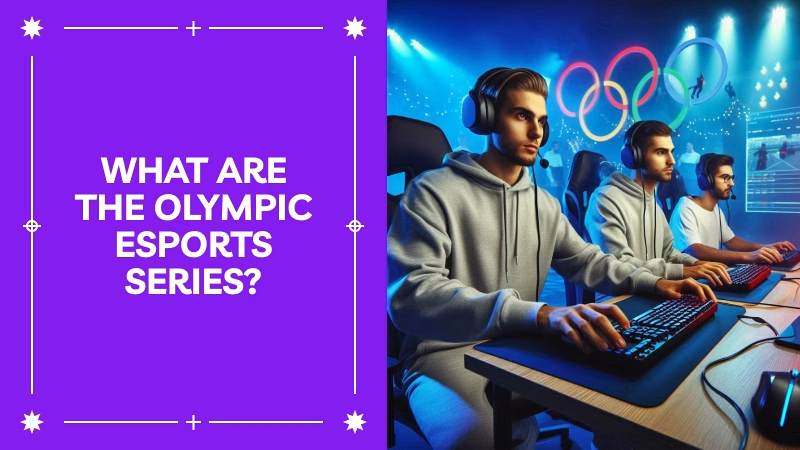
Under the flagship of the International Olympic Committee (IOC), The Olympic Esports Series, a global virtual and simulated sports competition. The main objective of the OES consists in marketing and popularizing virtual sports around the world on an equal basis with traditional types. Rather, the IOC is looking for ways to attract a younger audience and remain relevant in an ever-changing world of modern technologies that have brought Esports enthusiasts closer into their community.
The League is a joint effort that includes International Federations (IFs), game publishers, and the wider esports ecosystem. Through this collaboration the series will deliver a variety of games for players to enjoy, including sports simulations and racing games as well as virtual sports. The IOC partners with IFs and game publishers to ensure that the games proposed for inclusion on OES are fully in line with Olympic values of excellence, friendship and respect.
Singapore, 2023 In a significant turn for the show and bringing closer IOC’s evolving commitment to integrate esports into the Olympic framework came with first-ever occurrence of Olympic Esports Week in Singapore The event was a virtual sports celebration with gaming and competition literally drawing in participants — athletes and fans alike, from across the globe. From the open (Minecraft: Education Edition, Virtual Regatta) to more traditional gameplay like Tennis Clash and NBA 2K20 in North America or games around sports concepts such as Virtual Taekwondo — there were plenty of titles that can be viewed amongst these. Others showcasing a vast array of eSports diversity and entertainment.
The positive outcome of the Olympic Esports Week in Singapore started to reveal that interest level, casting an uncomfortable spotlight on the way E-sport could be a regular event at forthcoming Olympics. The event also served as a lead-up to Olympic Esports Games, proving that the IOC is willing to try new. So they started the journey and watched with interest. The event allowed for some of the best esports athletes to compete, but also called attention to giving women their place in a community full male professionals.
Olympic Esports Games 2025
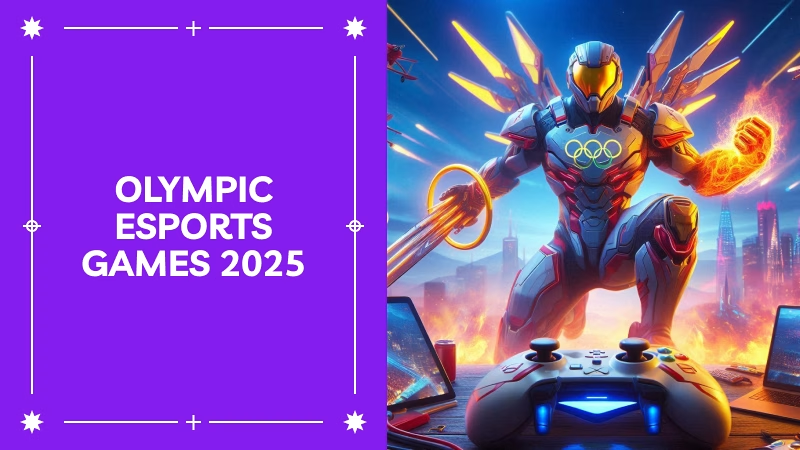
The inaugural Olympic Esports Games will be held in 2025 at Saudi Arabia, making a landmark event for both the games and the Olympic movement. The agreement also highlights Saudi Arabia’s increasing influence within the global esports industry and its ambition to foster a high-performing, comprehensive esports ecosystem.
If Saudi Arabia is involved in hosting the Olympic Esports Games, it will have a significant influence on not only this region but for the whole world of the esports industry. The event will be a global attraction, positioning Saudi Arabia as the host of esports and technology; The agreement in Saudi Arabia also underlines the kingdom’s wider ambitions to rebalance its economy around sports and entertainment sectors.
The 2025 Olympic Esports Games will consist of a varying number of games, organized by genre to cater to the audience. The process for choosing these games is based on the degree to which they align with Olympic values, size, gender, strong worldwide following and propensity of a sport’s sporting governing body (international federation) appealing enthusiasts globally. Here are some of the confirmed or possible games.
Sports Simulations- Relatively new but massively popular titles like Tennis Clash, or even Virtual Taekwondo provide real-life simulation of these traditional sports as one plays in multiple virtual arenas around the world.
Racing Games – Driving games like Gran Turismo and other racing sims deliver the ultimate motorsport challenge for you to be the best on track.
Virtual Sports: Combining technology and physical sport, virtual sports reveal hone strategic thinking or such as Virtual Regatta.
The participation of International Federations and game publishers in selecting the games for Olympic Esports Games will guarantee that every contest adheres to strict standards of competition and sportsmanship.
After which, the Olympic Esports Games 2025 will roll-out with an expansive format consisting of online qualifications, media championships in regions and live finals. This format offers athletes and teams the opportunity to qualify from all over the world on a wider scale with their own countries for global success. The purpose of the qualification process is to allow only the best players and teams advance through, in accordance with fair play values that should figure prominently in Olympic sport.
National representation is an integral part of the Olympic Esports Games, as athletes compete under their national flags. The resultant pride and level of participation associated with representing a country adds yet another dimension of enthusiasm for all those involved, be it the players or even their fans who wish to support in any way possible — eye opening just how far reaching eSports are on an international scale.
Esports at the Olympics, According to the IOC — The Olympic Esports Games will preserve its core values and traditions but it must also reflect current century trends. This includes encouraging gender equality and inclusivity, promoting female representation within the esports community, as well as creating a spirit of friendship and camaraderie among participants.
The Great Debate: Should Esports be in the Olympics?
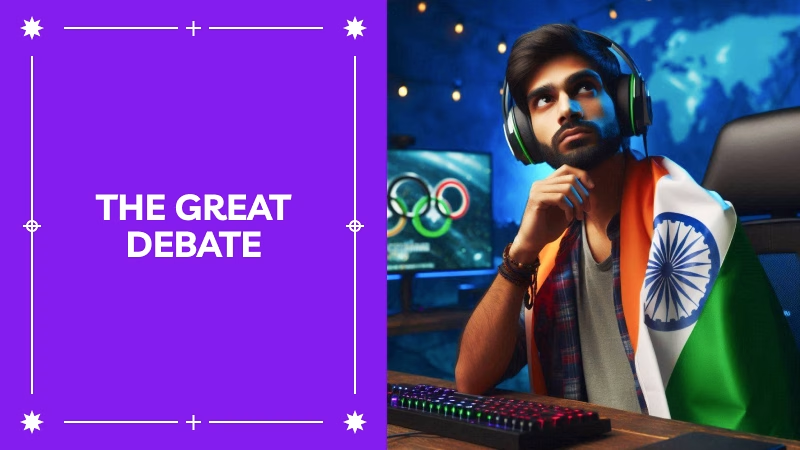
Esports will likely enter the Olympics anytime soon, and that could be already music to fans of virtual sports everywhere. The chat is bristling, and screed! One argument is that esports should make its own category at the games as it grows in popularity and players need talent like traditional sports. But, conversely, there are the traditionalists who dispute its right to be alongside physical sports. I plan to dig into both sides of that argument, and write about the subject through the lenses of one organization key to regulating it: The International Olympic Committee (IOC).
Arguments for Inclusion
Esport olympics not a passing trend, but an idea undoubtedly boosted by powerful reasoning. Let’s be real, the popularity of esports is undeniable. Because esports events draw tens of millions viewers from across the globe to watch games be played, it is not lost on anyone in the sports industry that these audiences far exceed those captured by some traditional sporting event. This most popular virtual phenomenon has been attracting more and more people worldwide beyond imagination which is a solid reason for it to be featured in the prestigious Olympic Games.
Concerns about Esports go beyond someone sitting at a screen and button-mashing. Sign In It takes at least a normal level of expertise, planning and cleverness. Players, like normal athletes, spend thousands of hours practicing and fine-tuning their skills. Plus, when we can play games like Street Fighter, Tennis Clash, and Gran Turismo that requires us to perform at our best in terms of hand-eye coordination, mental sharpness and collaboration – all important attributes for competitive athletes but also the values of excellence and commitment represented by Olympic charter.
But the Olympics might have to add esports just so that people are still interested in them, at least among younger viewers. The youth have been increasingly looking towards esports for entertainment and the Olympics has found it difficult to catch their attention. Adopting esports would bring a fresh image to the Olympics, bringing new generations of fans and securing its position in an increasingly digital age.
Arguments Against Inclusion
While there are really compelling reasons why esports should get their shot at inclusion, the arguments against them can’t be discounted. For one, some esports are very nuanced and involve violence in a competitive manner – which is somewhat alarming for many. Skeptics say the Olympics are about fostering peace and sportsmanship, but they wonder whether not every esport title fits that mold.
Rise of addiction and commercialization along with the rise in number esports as well. Many worry that this would just compound the problem, particularly amongst younger viewers. There is also the commercial side of esports, through sponsorships and branding which does raise questions regarding if it embodies an Olympic spirit that traditionally holds amateurism in high regard as well as fair play.
Another challenge is in defining what really makes a sport. Unlike traditional sports, however, which require physical athleticism among other things to be successful at the highest level of competition (even if only a little), it could theoretically be argued that having none whatsoever should exempt esports from consideration. One More Issue to Worry About-The biggest concern for gaming is the lack of fair play as cheating and hacking have become rampant amongst players in the esports community. Ensuring Esports History Esports has a long way to go before it can be declared an official Olympic sport but by offering strong qualifying standards and holding true principles will help pave the path for its recognition as such.
The IOC’s Perspective
The International Olympic Committee (IOC) has stopped beside the idea of including esports in the Olympics, but is doing so with an open-minded eye. There is great potential in eSports to develop and grow. The IOC knows that the Olympic values can be developed (and advanced) through games like this as well. This was in part what the first Inaugural Olympic Esports Week, recently hosted in Singapore for this sense of atmosphere. This was a demonstration of how esports could become an event held alongside the Olympics, instead of being integrated into traditional Olympic events.
Esports have a rather narrow path toward inclusion in the Olympic Games, as they need to be games that require physical activity and are “aligned with the values of the Olympic Movement.” In practice, this means games that are more like first-person shooters and very commercialized computer video game titles might be left out Artistic photo editing or sports simulations (“Virtual Taekwondo”, “Virtual Race” and the series Gran Turismo) may well receive official recognition
Collaboration with international federations, game publishers and the esports community are key to achieve fair play around these values.The IOC is currently discussing the inclusion of esport in its upcoming programs. High representation among the national Olympic committees and women can determine what is to come about where esports may fit in as a future Olympics event, while keeping consistent with its mission statement of video gaming.
The Future of Esports in the Olympics
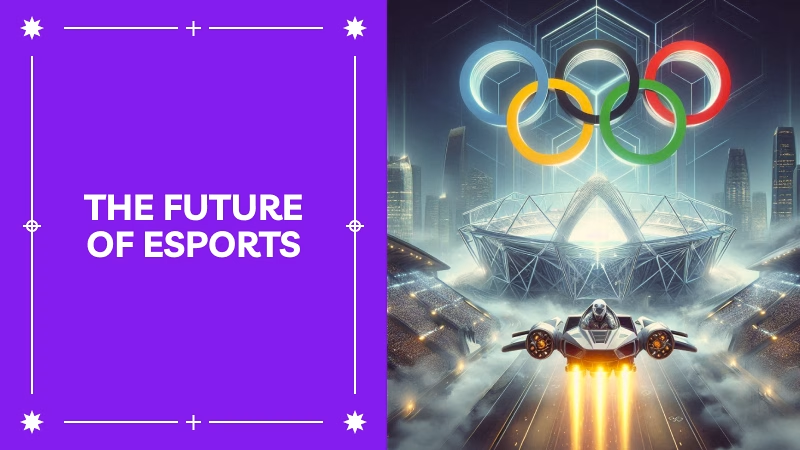
Although some readers may think it ludicrous that esports could ever become a part of the Olympics, the crazy thought isn’t too far fetched anymore. As we turn our eyes to the future of esports in the Olympic games, it is obvious that this breakthrough could be a significant win for both the industry as well as the courtier movement. Upon it, the first Olympics of Esports Games in two thousand and twenty five will be held; which marked a breakthrough sports era. And now, a closer look at what this means for all those affected.
Potential Impact
The potential implications of the Olympic Esports Games are enormous for esports as a whole. For one thing, it would be a major profile boost for esports just to have the Olympic ties. The International Olympic Committee, or IOC to add some brevity (it is an acronym after all),is a very internationally recognized organization and if the kick comes down from high enough up that it might be able to knock off “Just a hobby people still think are video games”helpers. Its new legitimacy could also draw in larger investments and sponsorships, as those same brands and investors see a path forward within the competitive gaming scene.
The Olympic stage would also mean exposure to a new audience that has not yet been won over by the worldwide popularity of gaming. The Olympics have a worldwide audience, as we know; but integrating esports into this event could help bring in a younger crowd that may not be so invested in typical sports. Not only does this increase in audience reach offer a way for the Olympics to drive new revenues —with advertisers interested in reaching an increasingly diverse and tech-savvy group of fans.
Additionally, as the Olympics seek to establish a relatedness with esports (to use Augustin Burgen’s terminology) this gives rise to an occasion where Olympic values — like excellence and fair play — could make their way into the rapidly growing world of electronic sports. Through promoting inclusivity in projects such as increasing the number of women within e-sports. In doing so, esports can appeal to a broader audience and grow its mainstream presence.
Challenges and Opportunities
Esports indubitably offers benefits that would integrate well within the Olympic framework, but making it a part of this world is not without challenges. There is one major problem to solve: in order for the Olympic Esports Games to be as good as it could, games have had to fit into values or Olympics standards. First-person shooters are almost certainly off the table, at least for Olympic inclusion (the IOC will almost definitely home in on simulated sports competitions as offered by Virtual Taekwondo and Gran Turismo to make sure that those adhere more narrowly to Article One of the Olympics Charter’s mission, which is centered around peace and unity).
There is also the issue of collaboration. Creating a meeting of the minds between IOC, international sports federations, game publishers and major esports organizations is no easy task. To find a common ground, there would have to be an open communication between the two parties but if we really wanted it. But this partnership is a chance to create, and expand. By collaborating with these stakeholders, they can work together to create new formats and regulations that make great games even better for the fan and fairer on field.
The further introduction of esports into the Olympics would also call for additional innovation surrounding specific types of events and technology. This could involve online qualifiers, regional competitions and live finals all of which will help make the Olympic Esports Games as accessible to players worldwide unlike any other event. The current global virtual modality has the potential to define new norms in the organization and logistics of esports events.
Incorporating esports into the Olympics would give it an opportunity to modernize its brand and maintain relevance in a fast-moving globe. Embracing esports is how the Olympics will engage with a younger demographic and. cart forward its capability to evolve alongside society as times change, o ye of little faith… Taking a step such as this to help attempt to guarantee that the Olympic Games stay alive and awesome for years ahead.
This partnership also benefits the Esports organizations as well. Inclusion into the Olympic movement will increase participation in esports events and competitions, garner more talent and create a culture of competition among players. Closer collaboration could also spell the start of more formal routes for esports players – including national representation and yet again, a new opportunity to thrill fans.
Conclusion
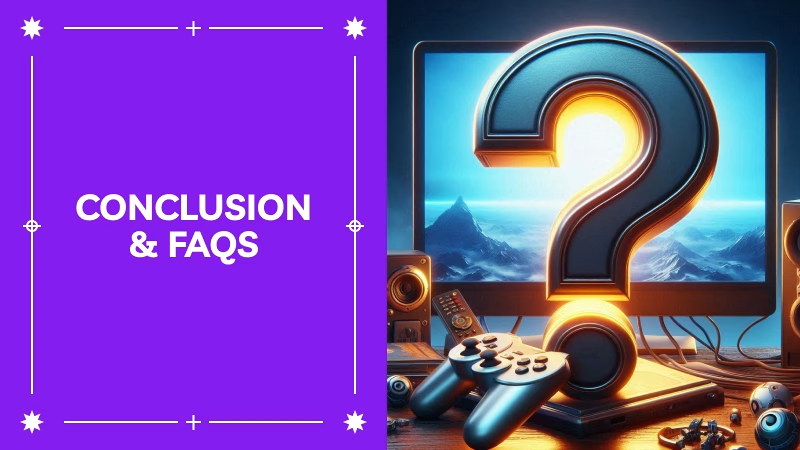
Esports at the Olympic Games will mark a substantial change in global sporting values, and they symbolize both traditionalism mixed with contemporary digital culture. The participation of the International Olympic Committee (IOC) in creating the Olympic Esports Series and later on planning a dedicated event underlining as IOC recognised high level competitive gaming marks an innovative way to face this new era of competition. Through things such as staging the first Olympic Esports Week in Singapore and outlining plans for hosting Olympics Championships Games (OCG) presentations in Saudi Arabia, the IOC is slowly but surely setting up esports to be officially recognised with an element of the Olympic movement.
As esports has transformed into a worldwide phenomenon, the addition of it in The Olympics could cause fans everywhere to rethink their perspective on competitive gaming. Connecting the worlds of virtual sports and traditional ones, after all these games opens up many new opportunities not only for fans but also for athletes. The choice of the games would need to be made with input from international federations and game publishers, picking those that reflect Olympic values like fair play.
It benefits the esports industry with legitimacy and will open them to large investments — bar none, exposure from actually being on an Olympic stage does wonders for public perception of skill in a sport. This partnership allows room for the creation of new styles, qualifiers and formats that enhance competitive events. Fans from around the world will have the opportunity to see their favorite players play in leading eSports competitions for national pride and take part in Olympic esports events on their home territories.
Looking ahead we know that the leadership of women, inclusion and partnership are critical. The Olympics of Esports are more than only competition; it’s about something bigger, a way to unite people with their diverse backgrounds and show kids today they can also be future athletes. So now really is the perfect time to tune in and catch up with what has been an electrifying chapter of sporting history for both veteran esports enthusiasts, and those new. The whole world is watching, and the future of esports in the Olympics has never been so promising.
